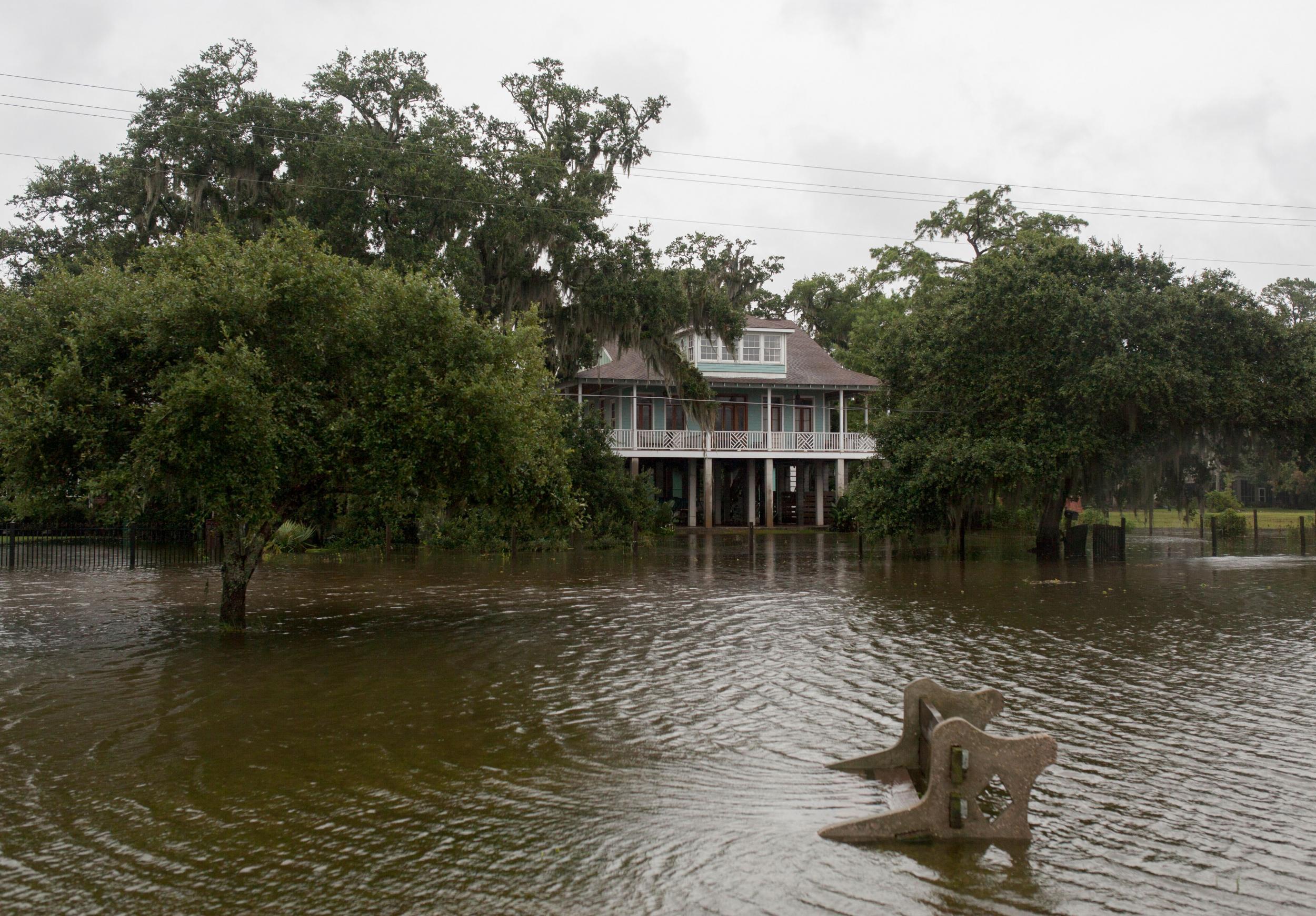Tropical Storm Barry: Fears of flooding, tornadoes and prolonged power outages in Gulf States
President Donald Trump has asked people across the region to stay alert

Your support helps us to tell the story
From reproductive rights to climate change to Big Tech, The Independent is on the ground when the story is developing. Whether it's investigating the financials of Elon Musk's pro-Trump PAC or producing our latest documentary, 'The A Word', which shines a light on the American women fighting for reproductive rights, we know how important it is to parse out the facts from the messaging.
At such a critical moment in US history, we need reporters on the ground. Your donation allows us to keep sending journalists to speak to both sides of the story.
The Independent is trusted by Americans across the entire political spectrum. And unlike many other quality news outlets, we choose not to lock Americans out of our reporting and analysis with paywalls. We believe quality journalism should be available to everyone, paid for by those who can afford it.
Your support makes all the difference.Tropical Storm Barry is dumping rain as it slowly sweeps inland through Gulf Coast states, stoking fears elsewhere of flooding, tornadoes and prolonged power outages.
But New Orleans missed the brunt of the storm with forecasters downgrading rainfall estimates for the city through Sunday to between 2 to 4 inches (5 to 10 centimeters). Earlier forecasts of quadruple that amount had raised concerns that water pumps strengthened after Hurricane Katrina would be overwhelmed.
Jackson, Mississippi’s capital city, was braced for possible flash flooding, however, after up to 3 inches (7.6cm) of rain fell in the area before dawn on Sunday - with even more precipitation on the way.
East of Baton Rouge and in the Mississippi - far from the storm itself - tornado warnings are in place but no serious damage or injuries have yet been reported.
President Donald Trump asked people across the region to stay alert, tweeting: "A big risk of major flooding in large parts of Louisiana and all across the Gulf Coast. Please be very careful!"
The US National Hurricane Centre said parts of south-central Louisiana could still have rainfall totals of up to 12 inches (30cm), with isolated pockets of 15 inches (38cm), meaning a storm surge is still a threat.
"This rainfall is expected to lead to dangerous, life-threatening flooding," forecasters wrote in an advisory.
On Saturday, Barry flooded motorways in Louisiana, forcing people to scramble onto car rooftops.
Coast Guard helicopters rescued a dozen people and two pets from flooded areas of Terrebonne Parish, south of New Orleans.
The category one hurricane weakened to a tropical storm shortly after making landfall on Saturday. By Sunday morning the maximum wind speed was 40mph.
None of the main levees on the Mississippi River failed or were breached.
Join our commenting forum
Join thought-provoking conversations, follow other Independent readers and see their replies
Comments